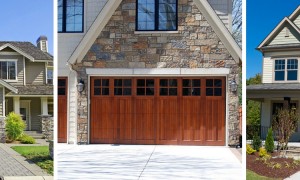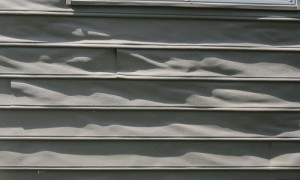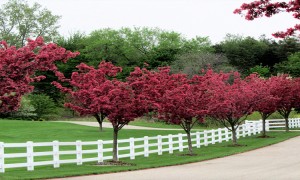By Chelsea McGrath
Is your garage overflowing with gear and gadgets? Whether your clutter is for business or pleasure, a backyard shed is the perfect storage solution.
But, extra space comes with a price tag. Prefab sheds can put you back thousands of dollars, and a bad DIY can cost you your weekends and your pride.
What if you could build a quality shed without breaking the bank? By following these five tips, you can kick the clutter and keep your wallet fat.
#1 Cut the Frill = Cut the Costs
The average custom-made shed costs anywhere from $2,109 to $3,545 depending on the materials you use and whether you do it yourself or call in a local pro.
So, how can you keep your shed budget under a grand? Cut out all the frills. Sheds become expensive when homeowners choose costly features, like
- Electricity
- Shelves and built-in storage
- Decorative trim
- Loft
- Ramp
- Workbench
- Large square footage
Skilled laborers, like electricians and carpenters, can charge up to $100/hour to add these custom features, not including the cost of added material.
Cheap sheds are basic sheds—four walls, a roof, and a foundation. Consider which features you need and which you can live without.
#2 Choose Cost-Effective Materials
You want your materials to be sturdy yet practical. Luckily, sheds can be built with a variety of materials, which we ranked from most to least expensive.
Expensive: Vinyl
Vinyl is a favorite among homeowners due to its strength and durability. Vinyl sheds are known to resist rot, harsh weather, insects, and dents.
It’s a great, maintenance-free option – especially for homeowners that live in areas that experience heavy snowfall and bad storms.
Of course, that durability comes at a price. At the cheapest, vinyl will run around $800 in material cost, and up to $5,000 at its most expensive.
Can be Costly: Wood
Wood is beautiful and popular and very customizable. But, it can also be expensive. A lot of labor and resources are put into making those beautiful wood slabs, driving up the cost.
Expect to spend anywhere from $600 to $3,000 on materials for a wood shed.
Cheapest: Metal
Metal is a cost-cutting favorite – it is low maintenance, resists rot, insects, and decay, and can last upwards of 25 years. Depending on the size of your shed, metal material can cost as little as $300.
Your metal shed won’t be as resistant to heavy snow and high wind, but it’s the ultimate budget saver in a temperate climate.
#3 Shop Around
You know what they say about one man’s trash being another man’s treasure? There’s always someone out there with too much of something who wants to reclaim their space. Which means you can snag up materials for ultra-cheap – sometimes even free!
Lumber mills are overflowing with waste. Politely ask the yard manager if they have any scrap wood you can take off their hands.
Or, search online. A quick search for free or discount lumber revealed dozens of results for wood people wanted to get rid of.
Of course, this means you have to drive (sometimes long distances) and deal with strangers. But, with some courtesy and research, you might be able to snag all or most of the materials for your shed at an ultra-cheap price!
#4 Rent Power Tools Instead of Buying Them
Unless you are a professional handyman, you probably don’t have a huge supply of power tools in your garage.
Contractors estimate you’ll need the following tools to build a shed, though you may need others depending on your materials and construction plans:
- Safety glasses / hearing protection
- Hammer
- Power drill (Cordless) & drill bits
- Tape measure
- Nail gun
- Circular saw
- Speed square
- Stepladder
- Sawhorses
While building a shed is a fun excuse to go tool shopping, it doesn’t make sense to drop a huge amount of dough for a tool you’ll only use twice a year. Buying all these tools could costs hundreds or even thousands of dollars. Not to mention, finding a place to store rarely used tools may be why you’re building a shed in the first place.
Thankfully, many local hardware stores allow you to rent tools for a fraction of the cost.
Of course, if you hire a contractor, they’ll already have all the tools, so you save costs.
#5 Check Permits to Avoid Hidden Costs
Check local building codes before building a shed in your backyard. Even though you’re building on your property, the city can fine you or force you to dismantle your shed if you don’t have the right permit.
Make sure you do your research to avoid unexpected fines and the cost of having to rebuild an improperly placed shed.
#6 When in Doubt, Go With a Pro
DIY projects often seem like the most cost-effective practice. But, consider the cost of materials, the amount of time you’ll have to commit, and your skill level.
Some parts of your project may be out of your skill range aHomd require hiring a carpenter, contractor, or electrician.
Better to hire a professional than spend money and time fixing mistakes and making repairs.
Whether you want to relax by the pool or you have a list of DIY projects, an organized space makes it easier to take full advantage of your summer.
Ready, set, build.
Chelsea McGrath is an Editor at HomeAdvisor with a love for all things home, health, sports and nature.
References:
http://www.toolcrib.com/2008/10/lumber-salvage-the-top-10-sources-for-cheap-free-and-recycled-wood
http://www.cheapsheds.com/metal-sheds/
https://www.familyhandyman.com/sheds/how-to-build-a-cheap-storage-shed/view-all







Thanks for those tips. Sheds really help us to to keep our things organize. Here’s a list of other great idea of using sheds http://www.thewoodenshedco.co.nz/Resources/the-many-use-of-timber-sheds/
That’s a great call on using reclaimed materials. There’s a giant thrift store/scrap yard in Berkeley that has a ton of scrap wood, metal and vinyl for cheap. If you’re into the reclaimed look, starting there (or some place like it) would make for an amazing shed.